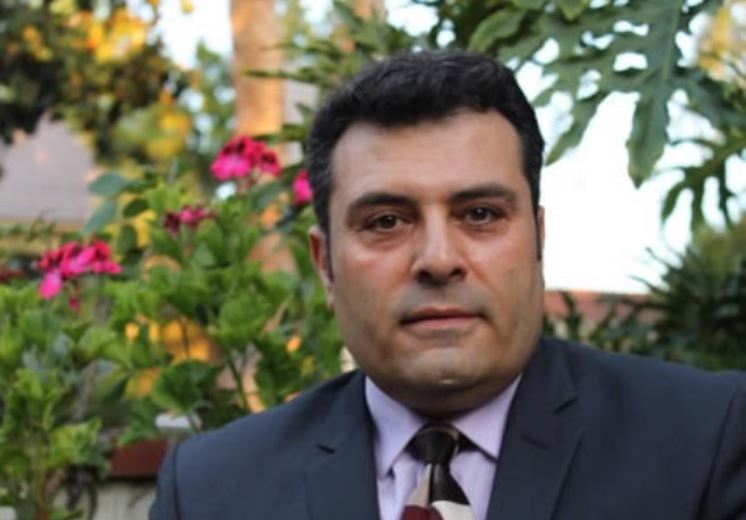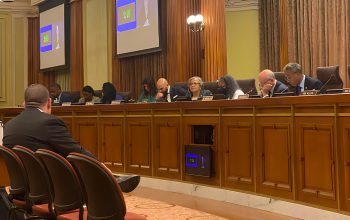By Dr. Prof. M. Mkhitar Moradian
PhD, Bioanalyst
The situation of Armenians in Syria, particularly in areas where they may be at risk due to shifting control, such as under HTS (Hayat Tahrir al-Sham), is deeply complex and concerning. Turkish and Israeli plans to divide and conquer Syria are serious and they won’t stop at any cost, even human lives. Turkey sees the presence of Armenians on its borders with Syria a problem, to say the least. Israel on the other hand could care less what happens to the minorities in Syria, including Armenians. Therefore, protection of the Armenian community in Syria, especially after the HTS takeover, requires a combination of strategic, diplomatic, and community-based measures. Here are several suggestions for how Armenians might protect themselves in such a scenario:
1. Strengthen Local Alliances and Networks
- Internal Solidarity: Strengthen community ties within the Armenian diaspora in Syria is quite important. The more unified the community, the more capable it will be of organizing protection and responding to threats. Fortunately, there already exist organizations that have been protecting the communities and therefore should continue creating solid and unified community.
- Partner with Other Minority Communities: Building alliances with other ethnic and religious minorities in Syria (such as Assyrians, Kurds, and Alawites) may offer mutual protection in the face of a potential escalation of violence or marginalization. A network of constant communication amongst these groups should be established and the dialogue between these communities should strengthen the alliances to support each other.
- Work with Local Syrian Authorities: Where possible, maintaining diplomatic relations with local governmental or military entities could help establish a degree of protection or negotiation. However, given the uncertain nature of the HTS actions and the decisions by their supporters, namely Turkey, this option should be cautiously monitored.
2. Avoid Direct Conflict with HTS- Seek Legal Protection
- Stay Neutral: Armenians, like other non-Sunni groups in Syria, may face less scrutiny or violence if they avoid directly confronting HTS or engaging in sectarian conflicts. By maintaining a position of neutrality, communities may be able to reduce their visibility to such groups. This strategy has been useful for minorities in many parts of the world yet could result in neglect and therefore lack of representation or even necessary means to survive.
- Seek Recognition of Minority Status: Engaging with Syrian and international legal frameworks to secure recognition as a protected minority group might provide Armenians with some form of legal protection, though this would likely be a longer-term effort.
- Documentation: Ensuring that individuals have proper documentation—birth certificates, identity cards, and other forms of proof of their heritage—can be important in cases of forced displacement or persecution.
3. Seek Protection from International Bodies
- Engage the UN and NGOs: The United Nations, specifically agencies like UNHCR (the UN Refugee Agency), may be able to offer protection or act as intermediaries in ensuring the safety of Armenians. International humanitarian organizations often have resources to advocate for and assist communities under threat.
- Diplomatic Pressure: Armenia, and potentially other nations with a vested interest in the safety of the Armenian community, can exert diplomatic pressure on Syrian authorities or HTS to ensure protection of religious and ethnic minorities. Advocacy from international actors may sometimes help prevent extreme actions against vulnerable populations. Unfortunately, the Republic of Armenia’s diplomatic mission in Syria left the country during the HTS attack. It is absurd for a country to leave its people unprotected even on foreign soil. It seems that the Republic of Armenia’s diplomats value their lives more than the ethnic Syrian Armenians. Go figure!!!!
4. Stay Informed and Prepared
- Intelligence Gathering: Communities should be aware of the movements of HTS and other militant groups in their areas. Establishing local watch networks or collaborating with intelligence groups from other minorities can help anticipate or even predict threats. Also, establish fast modes of communications to quicky be able to share the threats with international media and organizations.
- Escape Routes: As a last resort, communities should identify escape routes and safe zones. Having access to secure transportation, crossing points into neighboring countries like Lebanon or moving to Armenia, and knowledge of asylum processes can help when an evacuation becomes necessary. Let’s hope this won’t happen.
5. Security Protocols and Self-Defense
- Self-Defense Training: In the face of increased instability, it may be important for the Armenian community to have basic self-defense training, though this would need to be done in coordination with legal frameworks and in consultation with local authorities. Neighborhood watch groups are usually a good start and acceptable by the authorities.
- Organizing Security Forces: In some areas of Syria (like the Kurdish controlled regions), where ethnic or religious groups have been under threat, local militias or neighborhood defense units have been formed. Armenians in Syria might consider seeking support from such groups since organizing such forces could come with significant risks, including retaliation from hostile groups and legal consequences.
6. Psychological and Social Support
- Psychosocial Services: In times of crisis, providing psychological support and social services to help the community cope with trauma is critical. Having trained counselors, as well as a network for emotional and practical support, can help families navigate both the immediate challenges and long-term recovery. Armenian centers in Syria could host support systems for the people in need. Even regular gatherings and events could strengthen the community’s bonding.
- Sustainability and Self-Sufficiency: In situations where there might be long-term displacement or ongoing instability, Armenians in Syria should focus on maintaining self-sufficiency in terms of food, water, medicine, and other necessities. In this area the Armenian diaspora could play a major role by providing living resources through international organizations that will be allowed to work in Syria.
- Engage in Peacebuilding: While this is a longer-term goal, engaging in peacebuilding initiatives aimed at reconciliation between sectarian groups can help to ensure that no one group is targeted by extremist factions like HTS. Advocating for the rights of minorities in post-conflict Syria is critical to building sustainable security.
Conclusion
The protection of Armenians in Syria after an HTS takeover is not a simple task. It requires a multifaceted approach combining internal community solidarity, external diplomatic and humanitarian support, and practical measures of self-defense and preparedness. Coordination with international bodies, local actors, and humanitarian organizations will be essential to minimizing the risks faced by the community.
It’s a difficult and unpredictable situation, and those living within these regions must remain flexible in their approach, working to protect their cultural identity and physical safety, while also looking out for long-term solutions, such as resettlement or more stable living conditions outside of conflict zones.
We have obligation to support our Armenian brothers and sisters in Syria by any means necessary. The strategies above are just examples of what could be done, the more important task is to support them so some of these strategies could materialize.




